‘Significant opportunity’ for engineering geologists to increase influence on global sustainable development
Engineering geologists have an essential role to play in meeting the UN's Sustainable Development Goals (SDGs).
15/03/2022 By BGS Press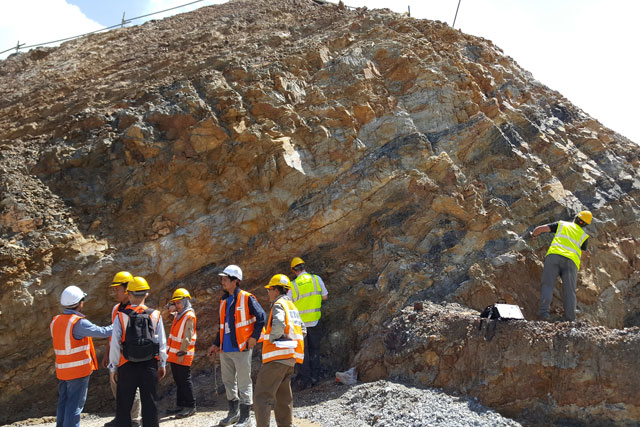
Engineering geologists do not just bridge the gap between earth sciences and engineering but have an essential role to play in meeting the UN’s Sustainable Development Goals (SDGs), a new study by geologists at Arup and BGS highlights.
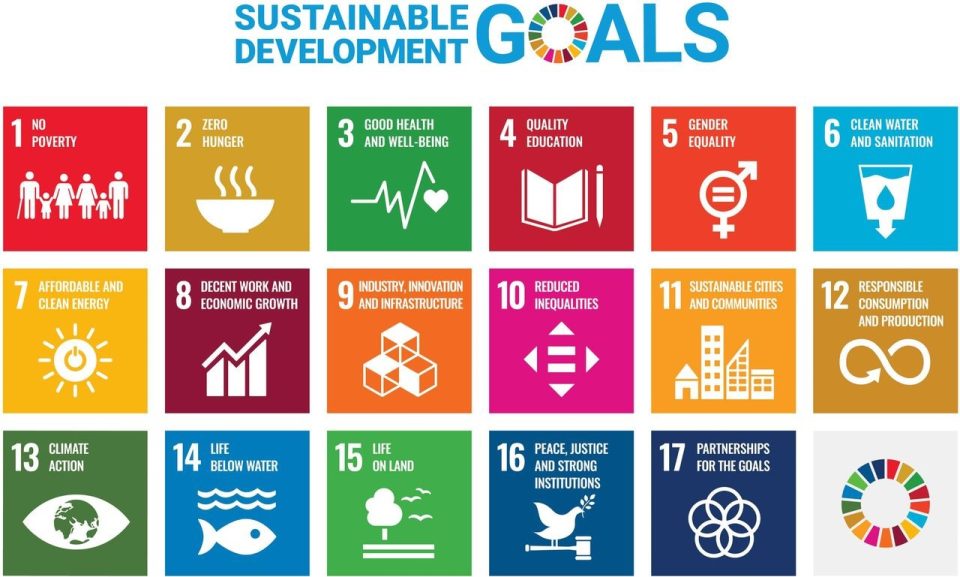
The UN’s 17 Sustaianable Development Goals. © United Nations 2022.
Crucially, their knowledge, skills and understanding around the interfaces between science and engineering and the natural and built environments past, present and future mean that engineering geologists offer a unique perspective to help build resilience to natural hazards, solve environmental problems caused by human activities and reduce the cost and risk of building and infrastructure construction.
Engineering geologists and, more broadly, geoscientists possess deep domain knowledge of natural systems and processes that makes them very well placed to tackle both environmental and socio-economic challenges covered by the UN SDGs.
Despite their unique skills and knowledge, geoscientists have historically been underrepresented in the global debate on sustainable development.
A significant opportunity therefore exists for geoscientists and engineering geologists especially to increase their influence and enhance their impact.
Marcus Dobbs, senior engineering geologist at BGS and contributor to the study.
To fully understand the current contribution of engineering geologists to the UN SDGs and where this could be enhanced, scientists at Arup and BGS undertook a mapping exercise to systematically review all 169 SDG targets and related indicators against typical engineering geology knowledge, skills and activities.
They concluded that engineering geology knowledge, skills and activities can be linked (directly or indirectly) to 107 of the 169 targets (63 per cent).
Engineering geology makes the strongest overall contribution to 5 of the 17 SDGs:
- SDG 7 (affordable and clean energy): linked to 100 per cent of targets
- SDG 9 (industry, innovation and infrastructure): linked to 88 per cent of targets
- SDG 12 (responsible consumption and production): linked to 82 per cent of targets
- SDG 11 (sustainable cities and communities): linked to 80 per cent of targets
- SDG 13 (climate action): linked to 80 per cent of targets
The mapping exercise shows that engineering geologists clearly have an important role to play in achieving sustainable development globally, primarily through their role in infrastructure development, building resilience and disaster risk reduction and environmental protection as well as in building equitable communities and through collaborative and strong partnerships.
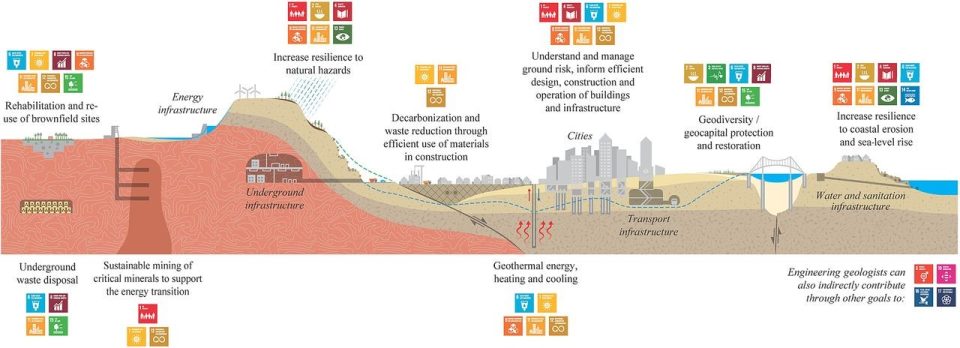
For over 20 years, BGS engineering geology research has:
- generated a wealth of data and information on the properties and behaviour of geological formations that are strategically important to critical infrastructure development in the UK
- undertaken research to enhance societal resilience to shallow geohazards by developing and communicating a better understanding of their distribution, character, susceptibility and triggering, and potential impacts, with much of this research specifically focused on landslides and landslide processes both in the UK and internationally
- made significant advances in the field of urban geoscience to specifically support decision makers in the planning and construction sector to optimise the use of the subsurface to make cities and communities inclusive, safe, resilient and sustainable
- contributed to the developed national-scale engineering geology and geohazard datasets to support sustainable and resilient land use, planning and development
In addition to the existing contribution of engineering geology to the SDGs, the Arup and BGS study also identified opportunities for engineering geologists to strengthen contribution to all 17 of the UN SDGs, with the greatest of these being to:
- SDG 7 (affordable and clean energy): 100 per cent of targets were identified;
- SDG 12 (responsible consumption and production): 55 per cent of targets were identified
- SDG 16 (peace, justice and strong institutions): 50 per cent of targets were identified
- SDG 17 (partnerships for the goals): 41 per cent of targets were identified
These opportunities include:
- extending influence across the project life cycle and to policymaking
- greater consideration of options for decarbonisation
- the impacts of climate change
- the value of geocapital and geodiversity
- training in geoethics
- a greater emphasis on diversity, inclusion and equity within the profession
- increased collaboration and knowledge sharing globally through cross- and multidisciplinary partnerships, and between industry and academia
In recent years, engineering geologists within BGS have been engaged in a range of multidisciplinary research studies to address some of these challenges, including:
- building multidisciplinary, international partnerships to improve the characterisation of multi-hazard relationships and help inform risk management in the context of sustainable development
- exploring the application of shallow geothermal energy technologies for both heating and cooling
- the potential for fault reactivation in deep geothermal reservoirs
- assessing potential viability of reusing depleted oil reservoirs for carbon capture and sequestration
- examining the physical properties and behaviour of geological materials to inform the development of the safe subsurface disposal of radioactive waste
- identifying and characterising marine geohazards and marine geohazard processes to support the development of large-scale offshore wind-farms
- working with industry and academia, through the Engineering Group of the Geological Society, to document and publicise good working practice for offshore exploration, survey and development
We hope these findings will enable and empower engineering geologists globally to better communicate the value of their contribution to society, the environment and the economy and identify opportunities to increase that impact.
Marcus Dobbs.
BGS is keen to broaden its research partnerships to include a greater diversity of collaborators and stakeholders from government, academia, industry and the not-for-profit sectors. Anyone interested in working with BGS on sustainable engineering geology research can contact Marcus Dobbs.
Gill, J C, Malamud, B D, Barillas, E M, and Noriega, A G. 2020. Construction of regional multi-hazard interaction frameworks, with an application to Guatemalaional multi-hazard interaction frameworks. Natural Hazards and Earth System Sciences, Vol. 20(1), 149–180.
Tomorrow’s Cities — an interdisciplinary research hub working globally to bring multi-hazard disaster risk management to the centre of urban policy and practice.
Relative topics
Related news
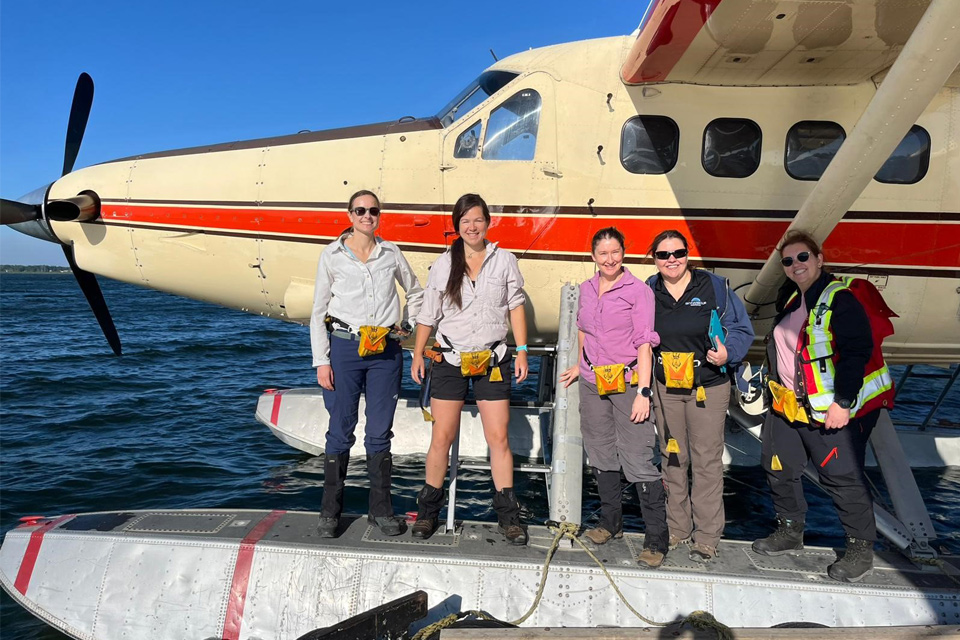
Funding awarded to UK/Canadian critical mineral research projects
08/07/2025
BGS is part of a groundbreaking science partnership aiming to improve critical minerals mining and supply chains.
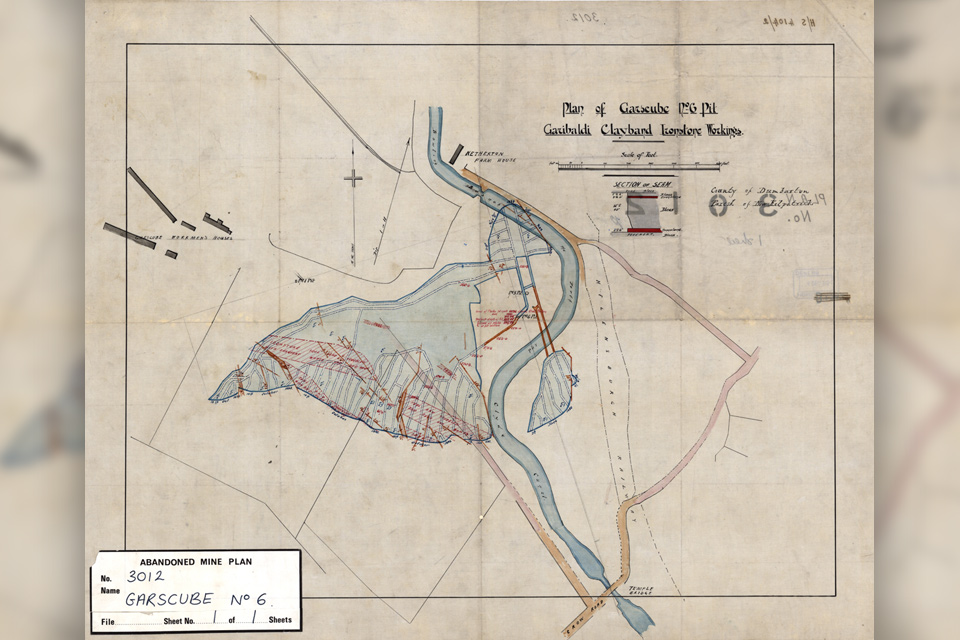
Release of over 500 Scottish abandoned-mine plans
24/06/2025
The historical plans cover non-coal mines that were abandoned pre-1980 and are available through BGS’s plans viewer.
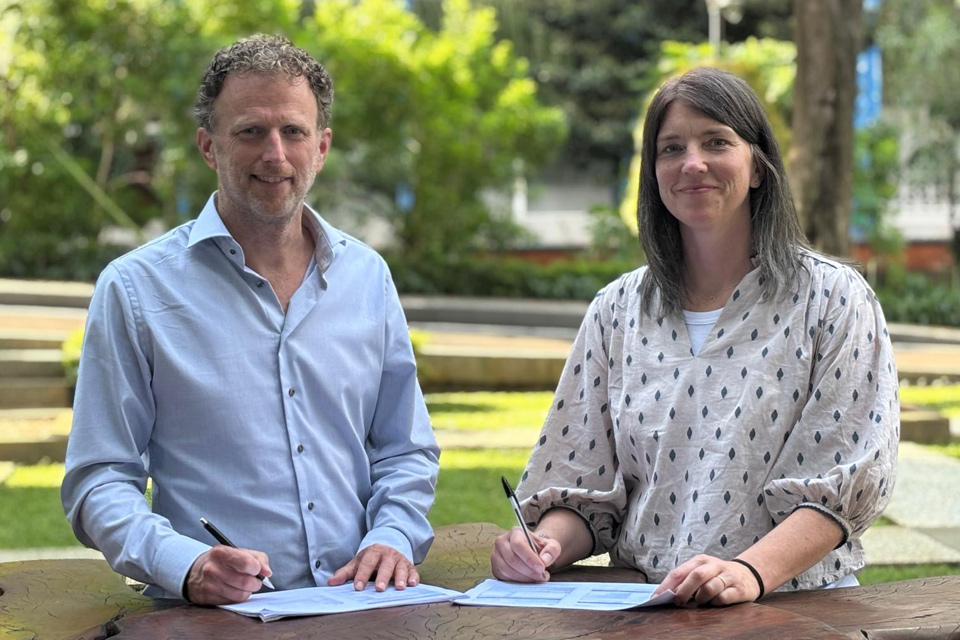
New collaboration aims to improve availability of real-time hazard impact data
19/06/2025
BGS has signed a memorandum of understanding with FloodTags to collaborate on the use of large language models to improve real-time monitoring of geological hazards and their impacts.
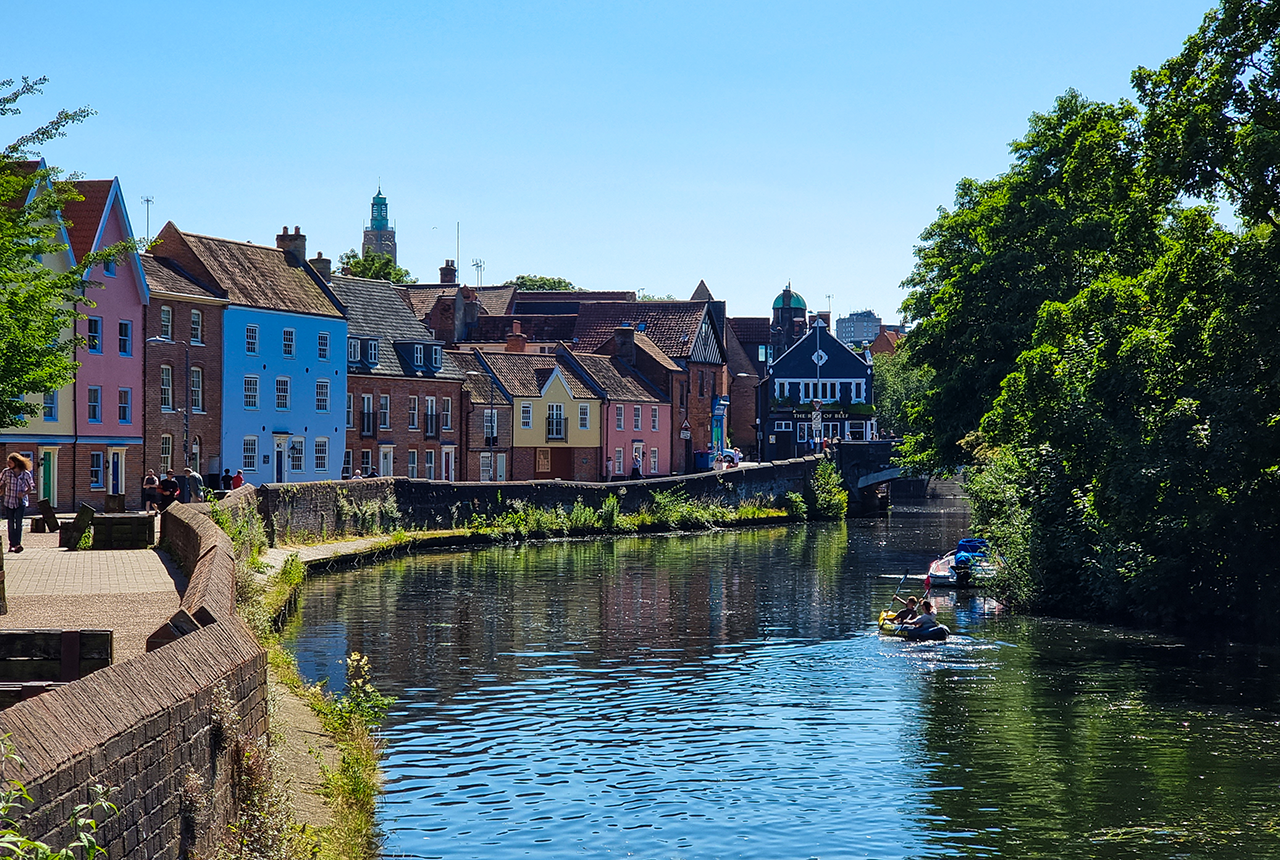
Modern pesticides found in UK rivers could pose risk to aquatic life
17/06/2025
New research shows that modern pesticides used in agriculture and veterinary medicines have been found for the first time in English rivers.

Goldilocks zones: ‘geological super regions’ set to drive annual £40 billion investment in jobs and economic growth
10/06/2025
Eight UK regions identified as ‘just right’ in terms of geological conditions to drive the country’s net zero energy ambitions.
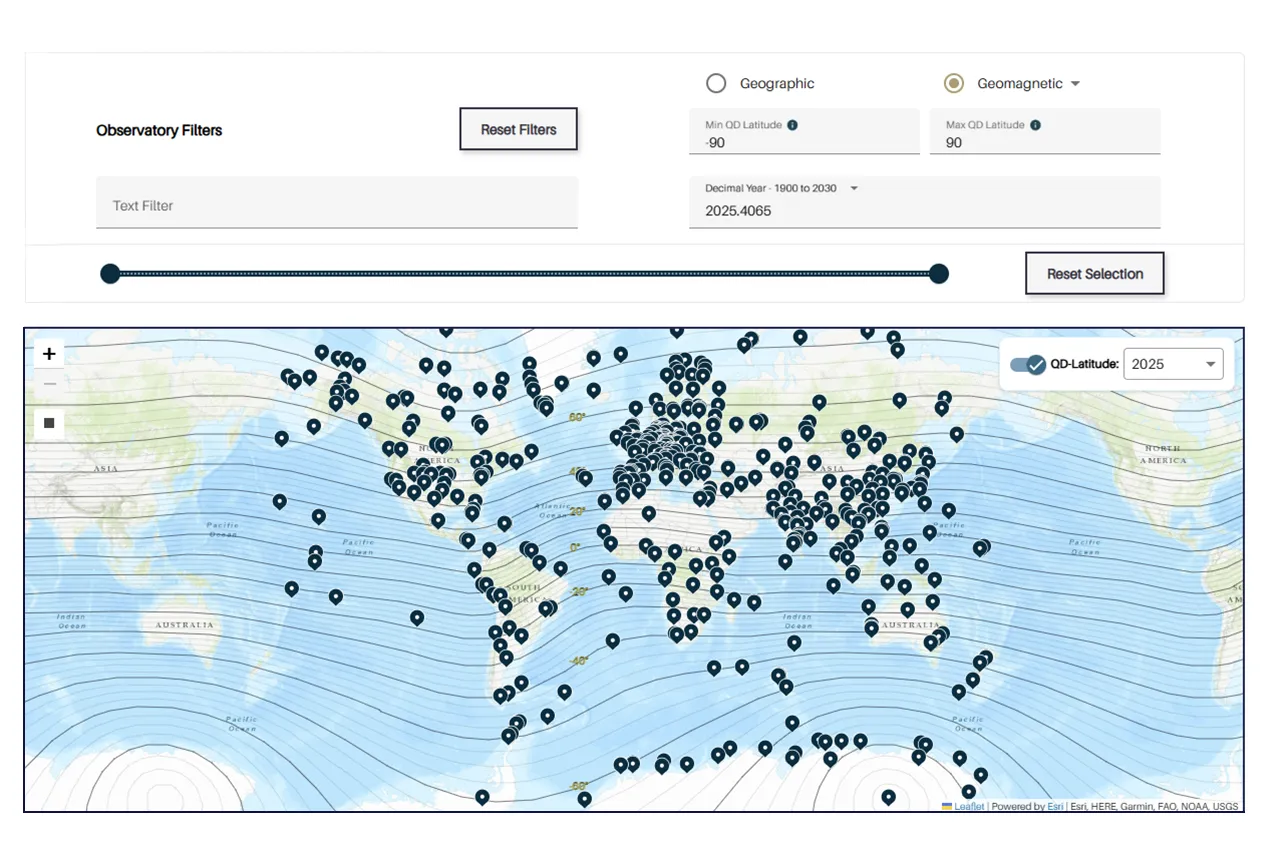
Upgraded web portal improves access to geomagnetism data
02/06/2025
BGS’s geomagnetism portal, which holds data for over 570 observatories across the world, has received a significant update.

BGS digital geology maps: we want your feedback
29/05/2025
BGS is asking for user feedback on its digital geological map datasets to improve data content and delivery.

What is the impact of drought on temperate soils?
22/05/2025
A new BGS review pulls together key information on the impact of drought on temperate soils and the further research needed to fully understand it.
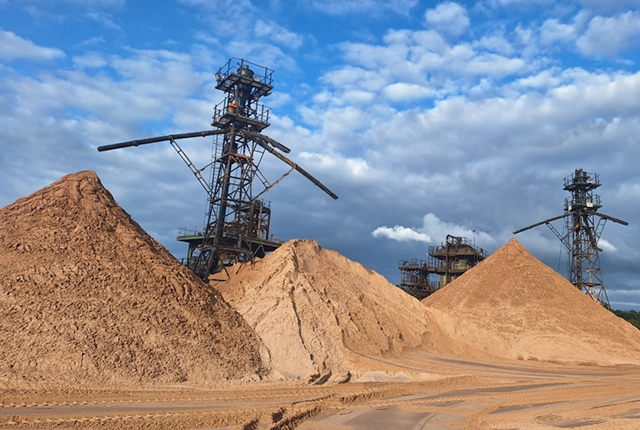
UK Minerals Yearbook 2024 released
21/05/2025
The annual publication provides essential information about the production, consumption and trade of UK minerals up to 2024.

BGS scientists join international expedition off the coast of New England
20/05/2025
Latest IODP research project investigates freshened water under the ocean floor.

New interactive map viewer reveals growing capacity and rare earth element content of UK wind farms
16/05/2025
BGS’s new tool highlights the development of wind energy installations over time, along with their magnet and rare earth content.
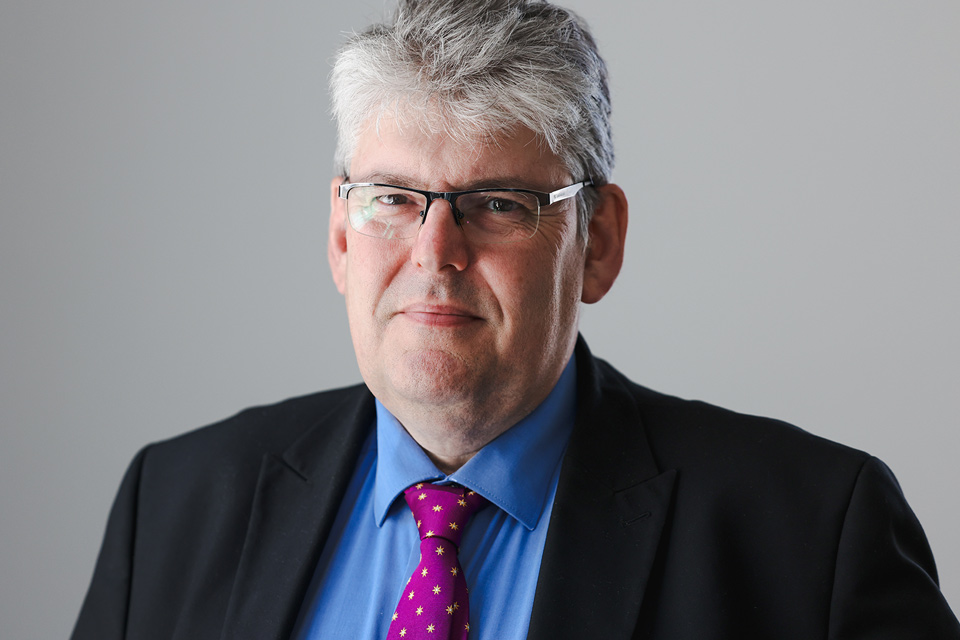
UKRI announce new Chair of the BGS Board
01/05/2025
Prof Paul Monks CB will step into the role later this year.




